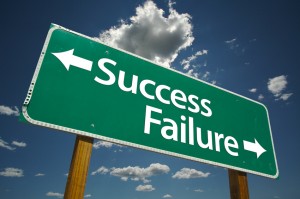It happened again today as I was checking in with a client to see how she was doing in the midst of a two-week sugar detox. “Better now,” she said as she told me she had stopped the cleanse after only a few days. We talked about what had happened (she hit the sugar wall hard, felt extremely low energy, foggy brain, etc… the usual suspects) and with all the various things going on in her day-to-day life, it was just too much.
Getting off sugar is no easy task. While food addiction hasn’t qualified to be in the DSM-IV yet, ask anyone who has struggled with their weight or sugar, and they will tell you it is as hard as (if not harder than) getting off cocaine, heroin, or nicotine – especially because it’s all around us and it’s legal. When we don’t have our support systems in place to help us – friends, family, and non-food related activities that help us feel good about ourselves – the journey becomes a bit more treacherous and challenging.
I see this a lot in my practice. People want to get on with “the program” and “get this thing done”! We want what we want, and we want it now! We want to lose weight, to feel better, to sleep better. We want to look good in that bikini and for our 20 year class reunion. The list goes on and on…
What we often forget to factor in is the importance of preparing ourselves mentally and emotionally for the journey we are about to embark on. We make a decision to do something, and it can be a great thing to do, but more often than not, we haven’t taken the time to create a plan to get there.
 How do we get our body, mind, and spirit connected and on the same page to move forward with our plan? And how we plan to be mindful and intentional before, during, and after this journey?
How do we get our body, mind, and spirit connected and on the same page to move forward with our plan? And how we plan to be mindful and intentional before, during, and after this journey?
In Dean Dwyer’s book Make Shift Happen, he goes into great detail about the importance of these preparations to the success of any program. I’m talking about the sugar detox today, but this information can be applied to virtually everything.
There is a lot of talk lately about the brain, neurochemistry, and creating new neural pathways – the concept of brain plasticity. Our thoughts are powerful beyond belief, and we know that the way we think affects how successfully we create change. And within those parameters, it’s vital to have a plan to prepare emotionally and mentally by giving ourselves some positive mantras like: I enjoy perfect health, and I am worthy of… (name your desire). Check out any of Louise Hay’s books for loads of positive affirmations – she’s a goldmine of positive thinking. My personal favorite is You Can Heal Your Life.
A last thought I’d like to share is this: Be Easy. Be easy with yourself and with others. Know that lasting change doesn’t happen overnight, and that you have a plan (and it can be flexible if necessary) for creating that change.
What happened on your physical journey? Did you prepare for it emotionally by having a plan? And, if you didn’t, what happened? We’d love to hear from you – if you have a comment leave it below!




Thanks for this–it arrived in my in-box at the exact right time. I’m in the midst of a very significant dietary shift that I never thought I would undertake (and to your point above, it doesn’t really matter what so I’ll spare you the details) and although I feel certain this is the right decision for me, I’m amazed how emotionally challenging it’s been. It’s really helpful to hear that that’s par for the course and there are meaningful strategies to get through this.
Thank you!!! Brilliant as ever, Margaret et al…
Lorraine
I’ve found well-crafted positive affirmations to be powerfully helpful. Another way to deal with negative emotions that can sabotage the best of intentions for change is using Emotional Freedom Technique. It’s so simple, it’s hard to believe it can work to dispel things like anxiety and fear, but it does!
I love this post, thank you!